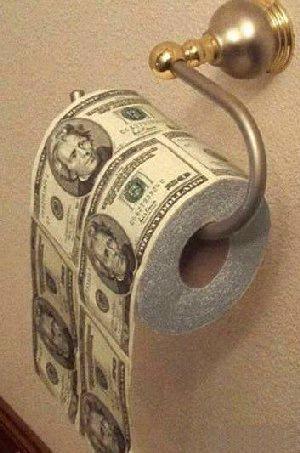Two CNBC stories are linked on the Drudge Report this morning, and they both highlight the growing risk of the Fed’s easy-money policy. The first story discusses whether the dollar will continue to depreciate. Since the “optimist” argument is based on global instability, this is hardly encouraging regardless of what you think will happen to the dollar.
The dollar’s slump could get far worse if the dollar index takes out last year’s low, Robin Griffiths, technical strategist at Cazenove Capital, told CNBC Monday. …”The dollar is being trashed, we’ve actually had effectively devaluation of about 14 percent in the last two months,” Griffiths said. His view is contrary to that of HSBC foreign exchange strategist David Bloom, who told CNBC that a continuation of the currencies war after the G20 might put pressure on risky assets, causing a flight to safety into the dollar.
The Germans certainly are not happy about U.S. monetary policy. The other story reveals that Bernanke’s easy-money policy met with criticism from other nations at the recent G-20 meeting in South Korea.
German Economy Minister Rainer Bruederle on Saturday took issue with what he called a U.S. policy of increasing liquidity, saying it indirectly manipulated exchange rates. The U.S. Federal Reserve is widely expected to embark on a fresh round of asset purchases to prop up the economy. “There was criticism of the American policy of monetary easing, or creating more liquidity,” Bruederle said after a meeting in South Korea of finance officials from the Group of 20 economic powers. “I tried to make clear in my contribution to the discussion that I regard that as the wrong way to go,” he said.
But maybe this image captures the real meaning of what’s happening to the dollar. On a more serious note, the United States is not in danger of becoming another Zimbabwe or Argentina, but there are real reasons to be concerned that political manipulation of monetary policy will bring us back to 1970s-style inflation. At that point, the question becomes whether we get a leader like Reagan who is willing to make the tough choices needed to restore a sound currency.
The Wall Street Journal obviously isn’t happy about the Fed’s policy. Writing about what happened in South Korea, they opine this morning that:
…the clear implication is that the U.S. will continue to print dollars until China and other surplus nations with currencies pegged to the dollar cry uncle and revalue. As for Europe and those countries whose currencies float against the dollar, they’ll have to decide whether to join the Fed’s easing binge or accept rising currencies too. This is a recipe for more currency turmoil, not less. And it is likely to drive more capital, not less, to Asia and elsewhere other than the U.S.

